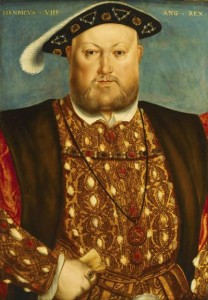 The Roman Catholic Church has always been somewhat suspicious of the nation-state, an institution it regards as an obstacle to its own claims of universal authority, so this story from the Daily Telegraph comes as no surprise:
The Roman Catholic Church has always been somewhat suspicious of the nation-state, an institution it regards as an obstacle to its own claims of universal authority, so this story from the Daily Telegraph comes as no surprise:
The Vatican wants Britain to stay in the European Union, the Pope’s foreign secretary has declared.
Archbishop Paul Gallagher, Secretary for Relations with States within the Holy See, suggested “Brexit” could weaken Europe.
In an interview with ITV, the English cleric who has a weekly meeting with Pope Francis, gave a clear signal of Rome’s view of the best outcome of the forthcoming in/out referendum on continued EU membership.
“The Holy See respects the ultimate decision of the British people – that’s for the British electorate to decide,” he said.
“But I think we would see it as being something that is not going to make a stronger Europe.”
No, Brexit would not weaken ‘Europe’, and, if it dealt a blow to the EU (which is something very different), it might well even strengthen it. The EU, based on post-democracy and an ideology imposed from the top, may appeal to the Vatican, but it has evolved into a catastrophe for the peoples of Europe. Under the circumstances, anything that might ‘weaken’ it (and, regrettably, Brexit could easily have the opposite effect) is only to be welcomed.
As to the Vatican and specific question of Brexit (the UK’s departure from the EU), perhaps it’s appropriate to revisit yet again what the British politician Enoch Powell had to say back in 1972 about Henry VIII’s assertion of English independence from Rome:
The relevant fact about the history of the British Isles and above all of England is its separateness in a political sense from the history of continental Europe…When Henry VIII declared that ‘this realm of England is an empire (imperium) of itself’, he was making not a new claim but a very old one; but he was making it at a very significant point of time. He meant—as Edward I had meant, when he said the same over two hundred years before—that there is an imperium on the continent, but that England is another imperium outside its orbit and is endowed with the plenitude of its own sovereignty. The moment at which Henry VIII repeated this assertion was that of what is misleadingly called ‘the reformation’—misleadingly, because it was, and is, essentially a political and not a religious event.
The whole subsequent history of Britain and the political character of the British people have taken their colour and trace their unique quality from that moment and that assertion. It was the final decision that no authority, no law, no court outside the realm would be recognized within the realm. When Cardinal Wolsey fell, the last attempt had failed to bring or keep the English nation within the ambit of any external jurisdiction or political power: since then no law has been for England outside England, and no taxation has been levied in England by or for an authority outside England—or not at least until the proposition that Britain should accede to the Common Market [the future EU].
Britain did, of course, go on to join that ‘Common Market’, not least because most Britons did not understand that ‘ever closer Europe’ meant what it said.
It’s time to reverse that now.
